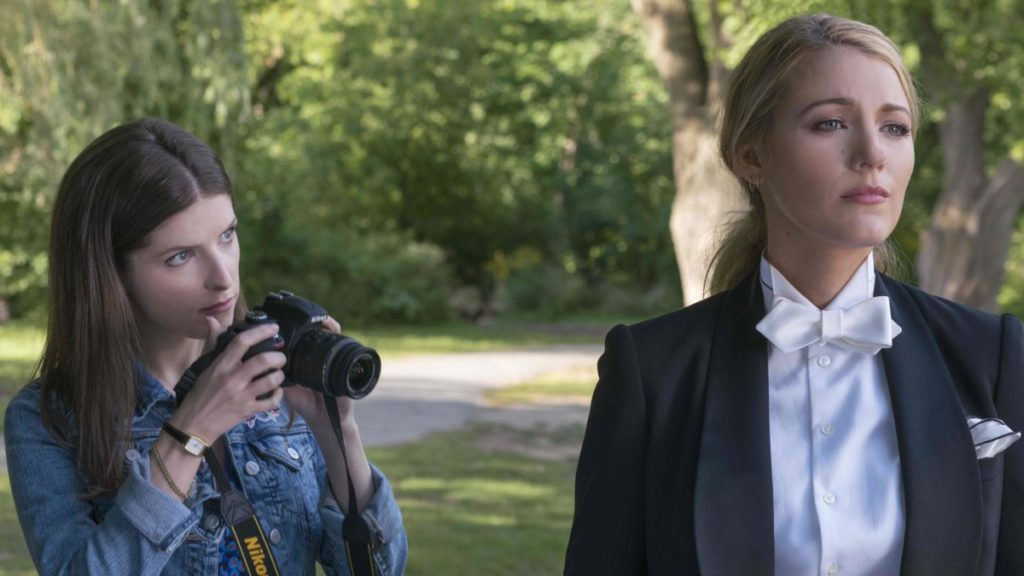Director Paul Feig attempted to do the impossible by producing “A Simple Favor.”
The plotline is serious, yet Feig casts two actresses who don’t seem fit for a drama: Anna Kendrick as Stephanie and Blake Lively as Emily. Kendrick is known for her role in “Pitch Perfect” as a comedic actress with a remarkable voice, and Lively is known for her role in shows like “Gossip Girl.” With this main cast and Feig’s history of directing comedies such as “Bridesmaids” and “Spy,” one can expect “A Simple Favor” to portray the director’s humorous style. The film’s comedic nature turned its cliched drama into a more realistic, interesting movie.
The plotline of “A Simple Favor” is straightforward: two polar opposite individuals, Stephanie and Emily, have kids who go to school together, so naturally, they become best friends and help each other out with errands. Emily, a workaholic, asks Stephanie to do her “a simple favor” by picking up her son from school. Of course, Stephanie says yes, but she ends up watching Emily’s son for three days because she cannot get in contact with either of his parents. After the third day, Stephanie speaks to Sean (Henry Golding), Emily’s husband, and the two realize Emily is missing. The rest of the movie is about finding Emily — and although Emily is presumed dead, her son thinks she is still alive and visits him.
In the first three-quarters of the movie, the viewer can predict almost exactly what is going to happen. The film is full of cliches: the nerdy mom becomes friends with the highly praised domestic goddess, Emily has a messier life than she leads on, the husband is the first to be suspected when Emily goes missing, the best friend and husband have sex and Emily is not actually dead. Each of these events has been overplayed in movies and make the plotline extremely foreseeable, which in turn, makes the film unenjoyable. The dialogue is also frighteningly predictable, so much so that it becomes funny. If they tried, the viewer could say the next line of the script before the character. The “twists” in the movie are not shocking, making the movie unexciting and irritating.
What saves the predictability from making people walk out of the theater is the characters’ quirky comedy, which provides something to look forward to throughout the film. Unfortunately, some of the comedy stems from unnecessary scenes. One such scene depicts Stephanie rapping in the car for 30 seconds after an intense argument, before quickly cutting to another scene that has nothing to do with Stephanie. It’s unimportant, and the time could have been used in the ending to make plot twists more distinct and provide a better understanding of what actually happened. Too many questions are left unanswered. For instance, the cops arrest Sean, and then the camera cuts to him walking into the house and seeing his wife. How did he get released and why? The movie never answers these questions — instead, it continues on with four more plot twists in its last 10 minutes.
Because the majority of the movie is predictable, the audience is comfortable and ready to watch the anticipated end of the film. However, in the last 10 minutes, Feig uses the viewers’ relaxed state to his advantage by implementing a series of plot twists. From a fake gunshot to a murderous Prius, nothing is off limits for the end of this unhinged film. Though it still leaves questions unanswered, the ending at least provides a riveting change from the previous predictability. While it got off to a slow start, the ending of “A Simple Favor” made the first hour and a half of the movie worth watching.




















